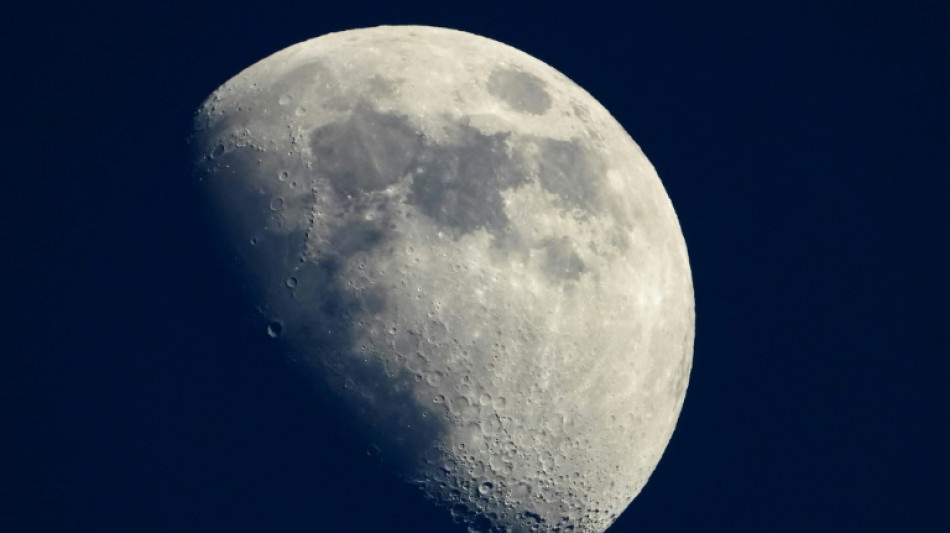
-
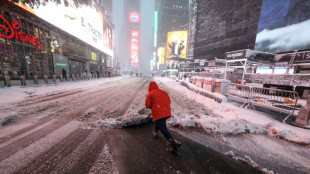 Snowstorm blankets US northeast as New York sees travel ban
Snowstorm blankets US northeast as New York sees travel ban
-
Healthcare crisis looms over Greenland's isolated villages

-
 Hodgkinson says breaking 800m record would put her among athletics' greatest
Hodgkinson says breaking 800m record would put her among athletics' greatest
-
Two Russian security personnel were on board France-seized tanker: sources

-
 EU puts US trade deal on ice after Supreme Court ruling
EU puts US trade deal on ice after Supreme Court ruling
-
Hetmyer blasts 85 as West Indies pile up 254-6 against Zimbabwe

-
 Canada PM heads to Asia seeking new trade partners as US ties fray
Canada PM heads to Asia seeking new trade partners as US ties fray
-
South Africa accepts Trump's new US ambassador

-
 Iraq's Maliki defends PM candidacy, seeks to reassure US
Iraq's Maliki defends PM candidacy, seeks to reassure US
-
UEFA suspend Benfica's Prestianni after alleged racist abuse

-
 Jetten sworn in as youngest-ever Dutch PM
Jetten sworn in as youngest-ever Dutch PM
-
Italy's Enel to invest 20bn euros in renewables by 2028
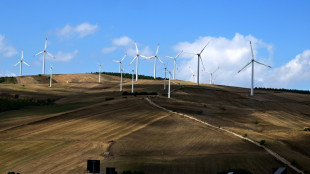
-
 BBC apologises for 'involuntary' Tourette's racial slur during BAFTA awards
BBC apologises for 'involuntary' Tourette's racial slur during BAFTA awards
-
Kristen Bell returns to host glitzy Actor Awards in Hollywood

-
 Iran says would respond 'ferociously' to any US attack
Iran says would respond 'ferociously' to any US attack
-
Venezuelan foreign minister demands 'immediate release' of Maduro

-
 Dane Vingegaard to start season at Paris-Nice in March
Dane Vingegaard to start season at Paris-Nice in March
-
Australia PM backs removing UK's Andrew from line of succession

-
 Where do Ukraine and Russia stand after four years of war?
Where do Ukraine and Russia stand after four years of war?
-
Police investigating racist abuse of Premier League quartet

-
 Fiji to start Nations Championship at 'home' to Wales in Cardiff
Fiji to start Nations Championship at 'home' to Wales in Cardiff
-
EU lawmakers to put US trade deal on hold after Supreme Court ruling

-
 Rubio to attend Caribbean summit as US presses Venezuela, Cuba
Rubio to attend Caribbean summit as US presses Venezuela, Cuba
-
'Ugly' England aim to spin their way to T20 World Cup semi-finals

-
 Nigeria paid Boko Haram ransom for kidnapped pupils: intel sources
Nigeria paid Boko Haram ransom for kidnapped pupils: intel sources
-
Tudor says Tottenham can still beat the drop despite Arsenal loss

-
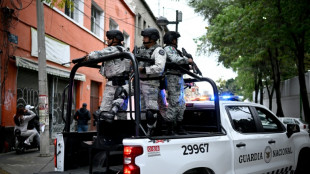 Violence sweeps Mexico after most-wanted drug cartel leader killed
Violence sweeps Mexico after most-wanted drug cartel leader killed
-
France giant Meafou capable of being 'world's best' lock

-
 Stocks diverge, dollar down over Trump tariffs uncertainty
Stocks diverge, dollar down over Trump tariffs uncertainty
-
World champions South Africa announce eight home Tests for 2026/27

-
 Liverpool boss Slot encouraged by Mac Allister's return to form
Liverpool boss Slot encouraged by Mac Allister's return to form
-
India replaces British architect statue with independence hero
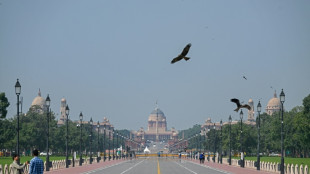
-
 Pakistan warn England's flaky batting to expect a trial by spin
Pakistan warn England's flaky batting to expect a trial by spin
-
Philippines' Duterte authorised murders, ICC told as hearings open

-
 Iran says would respond 'ferociously' to any US attack, even limited strikes
Iran says would respond 'ferociously' to any US attack, even limited strikes
-
New Dutch government sworn in under centrist Jetten

-
 What the future holds for the CJNG cartel after leader killed
What the future holds for the CJNG cartel after leader killed
-
ICC kicks off pre-trial hearing over Philippines' Duterte

-
 UN chief decries global rise of 'rule of force'
UN chief decries global rise of 'rule of force'
-
Nemesio Oseguera, the brutal Mexican drug lord known as 'El Mencho'
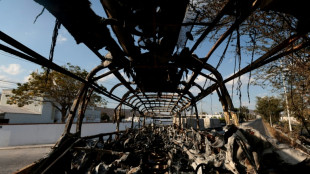
-
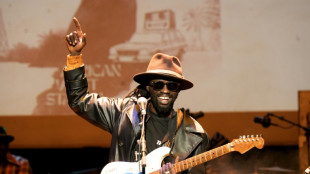 Senegal's Sahad, radiant champion of 'musical pan-Africanism'
Senegal's Sahad, radiant champion of 'musical pan-Africanism'
-
New York orders citywide travel ban as major storm hits US
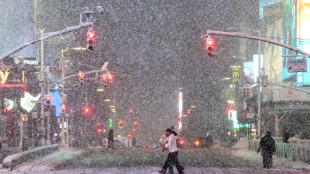
-
 'Considered a traitor': Life of an anti-war Ukrainian in Russia
'Considered a traitor': Life of an anti-war Ukrainian in Russia
-
South Korea and Brazil sign deals on K-beauty, trade

-
 Zimbabwe farmers seek US help over long-promised payouts
Zimbabwe farmers seek US help over long-promised payouts
-
Hong Kong appeals court upholds jailing of 12 democracy campaigners

-
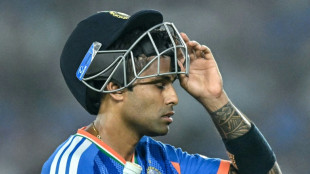 India battle for World Cup survival after 'messing up on grand scale'
India battle for World Cup survival after 'messing up on grand scale'
-
'I will go': Bengalis in Pakistan hope for family reunions

-
 North Korea touts nuclear advances as Kim re-chosen to lead ruling party
North Korea touts nuclear advances as Kim re-chosen to lead ruling party
-
South Korea protests 'Victory' banner hung from Russian embassy
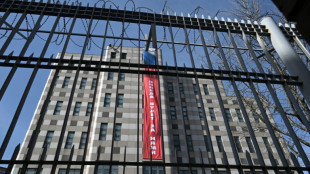

NASA aims to make observations from space junk collision with Moon
NASA said Thursday it aims to survey the crater formed when the remains of a SpaceX rocket are expected to crash into the Moon in early March, calling the event "an exciting research opportunity."
The rocket was deployed in 2015 to put a NASA satellite into orbit and its second stage, or booster, has been floating in the cosmos ever since, a common fate for such pieces of space technology.
"On its current trajectory, the second stage is expected to impact the far side of the Moon on March 4, 2022," a NASA spokeswoman told AFP.
The impact of the rocket chunk weighing four tons will not be visible from Earth in real time, nor will NASA's Lunar Reconnaissance Orbiter (LRO), which is currently orbiting the Moon, be in a "position to observe the impact as it happens," the spokeswoman said.
The LRO could be used later, however, to capture images for before-and-after comparisons.
Finding the crater "will be challenging and might take weeks to months," the spokeswoman said, adding that the "unique event presents an exciting research opportunity."
Studying a crater formed by a hurtling object with a known mass and speed (it will be traveling at 9,000 kilometers per hour), as well as the material that the impact stirs up, could help advance selenology, or the scientific study of the moon.
Spacecraft have been intentionally crashed into the Moon before for scientific purposes, such as during the Apollo missions to test seismometers, but this is the first unintended collision to be detected.
Astronomer Bill Gray, creator of a software used to determine the trajectories of asteroids and other objects, was the first to calculate the booster's new collision course with the Moon.
He believes that space junk should always be directed towards the moon when possible: "If it hits the moon, then we actually learn something from it," Gray said.
B.Khalifa--SF-PST



